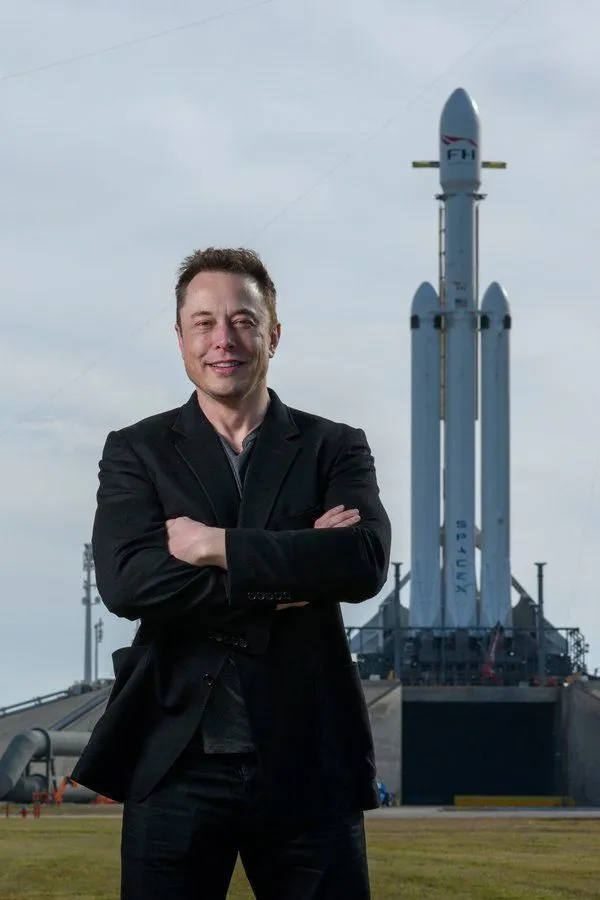Elon Musk has always been a figure of both admiration and controversy. Known as the world’s richest man, the CEO of Tesla, SpaceX, and numerous other ventures has constantly broken barriers in business and innovation. But now, the spotlight is shifting toward a new issue: Musk could secure a $1 trillion pay package, potentially the largest in corporate history. Yet without a clear Elon Musk successor, this staggering deal may never become reality.
The question is no longer about whether Musk can generate value — he has already proven that by turning Tesla into a global electric vehicle giant and SpaceX into a leading space exploration company. The issue is what happens after him. Can the empire he has built survive without him at the helm? And will investors allow such a monumental package without guarantees of a smooth transition?
The Origins of the Trillion-Dollar Pay Deal
The conversation about Musk’s trillion-dollar compensation traces back to Tesla’s history of bold executive pay packages. In 2018, Musk was granted a landmark $50 billion stock-option deal tied to ambitious milestones in Tesla’s market cap and performance. At the time, critics dismissed it as unattainable, but Tesla smashed through those goals years ahead of schedule. Musk’s ability to defy odds became central to Tesla’s success story.
Today, speculation grows about a new package that could dwarf anything before. Analysts suggest Musk might receive a $1 trillion deal, contingent on Tesla and his other ventures continuing to dominate industries like electric vehicles, space travel, and renewable energy. But corporate boards are more cautious this time. They want assurances that if Musk steps away or becomes unavailable, his companies won’t spiral into chaos.
That assurance requires one thing: a clear successor to Elon Musk.

Why Succession Matters More Than Ever
Tesla, SpaceX, Neuralink, and Musk’s other companies depend heavily on his leadership. His vision, charisma, and ability to attract both investors and top talent are unparalleled. Markets move based on his tweets alone. However, this dominance creates a dangerous dependency.
If Musk were to suddenly step back — due to personal choice, health, or unforeseen circumstances — the absence of a succession plan could destabilize multiple companies simultaneously. Investors know this. That is why the Elon Musk successor dilemma has become central to the trillion-dollar pay discussion.
No matter how much value Musk creates today, boards and shareholders want to know their investments will survive tomorrow. Without a named successor, a $1 trillion package seems reckless, even for a visionary like Musk.
The Challenges of Finding “The Next Musk”
Finding someone to replace Musk is no ordinary task. He is not just a CEO. He is a brand, a cultural phenomenon, and a driving force behind industries ranging from automotive to aerospace.
Most CEOs manage businesses. Musk manages revolutions. His leadership style is unorthodox, demanding, and deeply personal. He makes decisions quickly, often bypassing bureaucracy, and thrives on risk. These qualities are nearly impossible to replicate.
Who could fill such shoes? Some speculate Tesla executives like Tom Zhu, who has overseen the company’s operations in China, could rise in prominence. Others believe Gwynne Shotwell, the respected president of SpaceX, is the closest thing to a Musk replacement. Yet neither carries the same aura, the same ability to electrify markets, or the same cult-like following Musk commands.
The successor to Elon Musk is not only about management. It is about carrying a vision of Mars colonization, global clean energy, and futuristic technology. It requires someone who can balance engineering genius with public charisma — a rare combination.
Investor Concerns Over Musk Dependency
For shareholders, the risk of Musk’s absence is tangible. Tesla’s stock price often rises and falls with his announcements. SpaceX’s valuation benefits from his personal reputation as much as its engineering achievements. Even Neuralink and The Boring Company rely on the Musk name to attract attention and investment.
This dependency makes the issue of a succession plan for Elon Musk urgent. Without one, investors may hesitate to approve or support a trillion-dollar package. After all, what good is paying a visionary if the company collapses without him?
Markets thrive on stability. Musk’s brilliance is undeniable, but boards and shareholders need to see a roadmap for leadership continuity. The trillion-dollar package is not just about rewarding Musk — it is about ensuring his empire remains intact for decades.
Comparisons to Other CEOs
Other major corporations have long prioritized succession planning. Apple, for example, faced a similar crisis when Steve Jobs’ health declined. But Jobs prepared the company by grooming Tim Cook, who successfully carried Apple into a new era. Microsoft transitioned from Bill Gates to Steve Ballmer to Satya Nadella, each bringing different strengths while maintaining stability.
Musk, however, has yet to identify his “Tim Cook.” Without naming a successor, Tesla and SpaceX remain vulnerable. If Musk were to exit abruptly, these companies could face chaos. That is why a successor plan for Elon Musk is seen as critical before any trillion-dollar deal is finalized.

The Trillion-Dollar Pay Package as Leverage
Some analysts suggest that the trillion-dollar package is not just a reward but also leverage. By tying compensation to succession planning, boards can push Musk to address the one issue he has avoided. In effect, they may say: secure the future of your companies, and in return, secure your unprecedented payout.
This creates a balance between Musk’s desire for compensation and the market’s need for stability. It ensures that even if Musk eventually steps away, his companies have the leadership necessary to carry forward his mission.
The Legacy Question
For Musk, the issue of succession ties directly to his legacy. He has often said that wealth is not his true motivation. Instead, his mission is to make humanity a multi-planetary species and to accelerate the transition to sustainable energy. But those missions will outlive him. They require decades, possibly centuries, to achieve.
Without a successor, Musk’s legacy could falter. His empire could lose direction, and his vision could fade. With a successor, however, his work could continue for generations. Naming one would ensure that the Elon Musk trillion-dollar pay deal becomes more than a personal milestone. It would become an investment in the future of humanity.
Public Perception of the Trillion-Dollar Deal
The public reaction to a trillion-dollar compensation figure has been divided. Critics argue that no individual should receive such enormous wealth, especially during times of global inequality. Supporters counter that Musk has generated immense value for shareholders, created industries from scratch, and pushed the boundaries of what is possible.
Whether celebrated or criticized, one truth remains: Musk’s influence is global, and his leadership is rare. The Elon Musk successor issue makes the discussion about his pay package even more dramatic. People wonder not just how much he should be paid, but also what happens when he is no longer in charge.
Conclusion: The Future Depends on Succession
Elon Musk’s potential $1 trillion pay package is both a symbol of his extraordinary achievements and a reminder of the risks tied to his leadership. Without a successor, the deal may never happen. Investors, boards, and stakeholders demand clarity on who can continue Musk’s mission should he step aside.
The challenge of finding a successor to Elon Musk is immense, but it is essential for Tesla, SpaceX, and his entire empire. Without one, the future of these groundbreaking companies is uncertain. With one, Musk’s legacy can extend far beyond his lifetime, ensuring that his vision for humanity continues to shape the world.
In the end, the trillion-dollar package is not just about wealth. It is about stability, legacy, and the future of innovation. And until Musk identifies a successor, that future remains at risk.